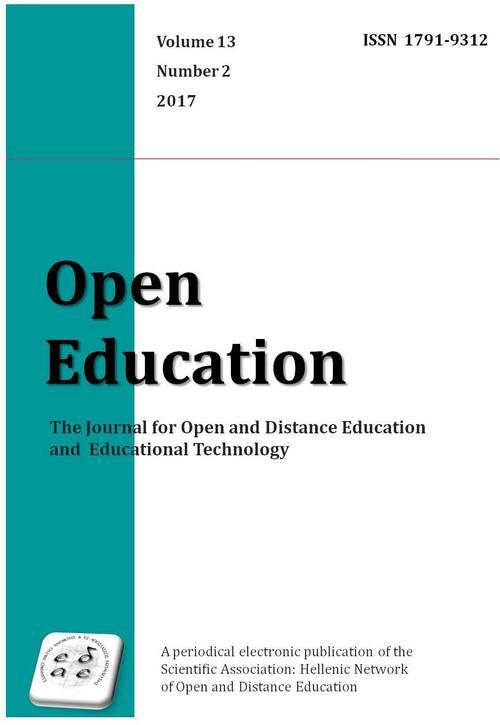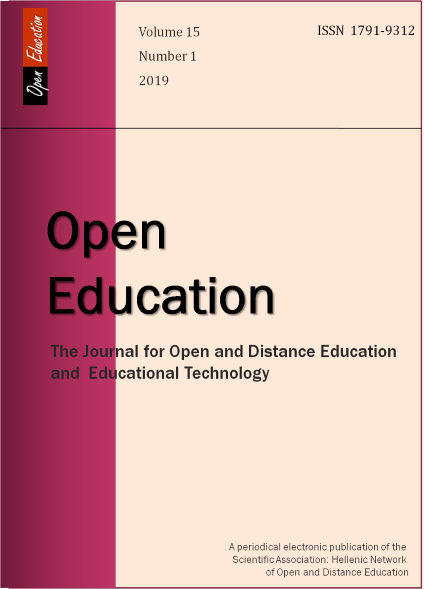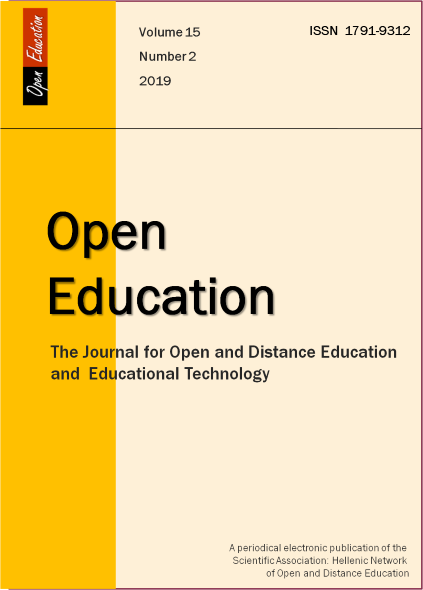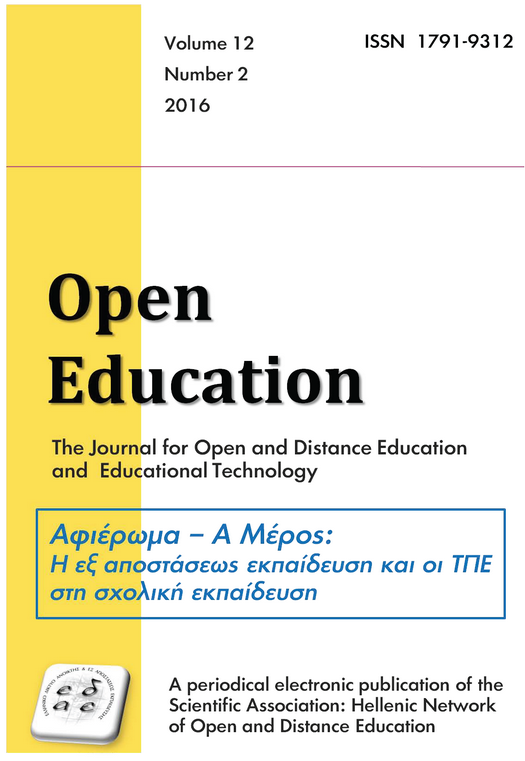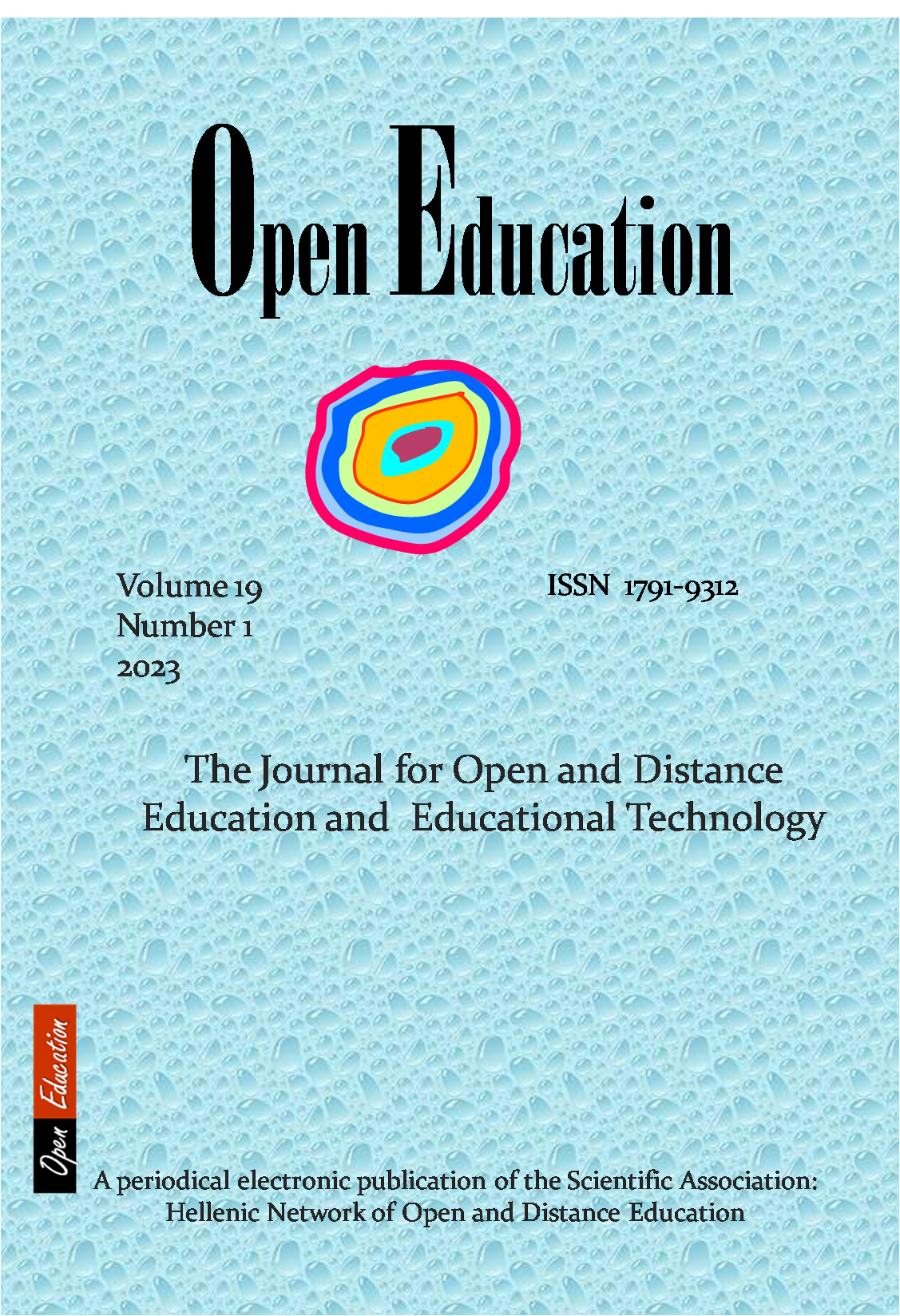Διερεύνηση των αντιλήψεων των εκπαιδευτικών για την κινητή μάθηση και των παραγόντων που τις επηρεάζουν
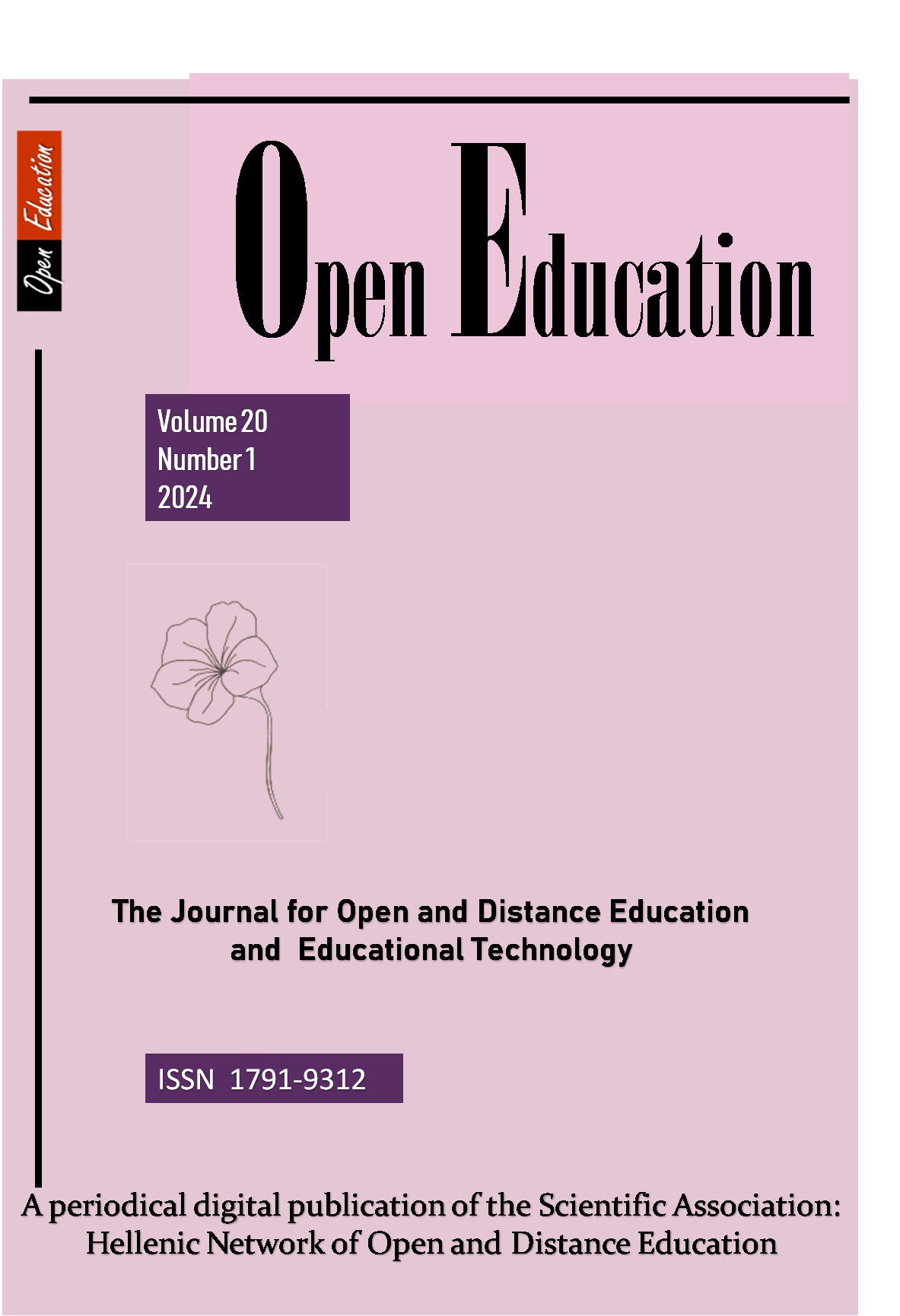
Abstract
Nowadays, the daily lives of productive members of modern societies are structured around smart mobile devices and their applications, which support public services, such as health and education. As far as education is concerned, in recent years we have observed the educational, research and academic community carefully examining methods of utilizing and integrating smart mobile devices into the educational process, aiming to upgrade the learning experience. En route for predicting the success, speed and degree of exploiting mobile technology in the educational process, the investigation of teachers’ perceptions regarding mobile learning is considered particularly important. This article presents a relevant small-scale survey in which the principles of quantitative methodology were adopted for data collection. The survey was conducted in Heraklion, Crete, within the context of a robust ethical framework, in the spring semester of the 2021-2022 school year, with 127 Secondary Education teachers as participants. The research objective was to investigate the perceptions of Middle School and High School teachers regarding the integration of mobile learning into the educational process. In addition, teachers' gender, age, teaching experience and specialty were examined as possible factors shaping their perceptions. The research tool was a Goggle form, which consisted of two parts. The first one was recording the demographic details of the participants. The second one, which was the Greek translation of the Mobile Learning Readiness Survey, was examining teachers' willingness to integrate mobile devices into the educational process. Towards this end, four factors were investigated: the perceptions of research participants regarding the potential benefits of mobile learning, the expected benefits of making good use of mobile technology in educational activities, their preferences regarding the use of mobile devices in their daily lives, and the external influences they receive regarding the utilization of mobile learning. The statistical analysis of the research data was conducted using the powerful statistical software platform SPSS. With the aim of describing the basic features of the data in the study, descriptive statistics were employed. Analysis of Variance was also exploited in order to determine potential statistically significant differences between groups of participants of different gender, age, teaching experience, and specialty. The results of statistical analysis revealed that teachers recognize the benefits of exploiting mobile technology in the classroom. In addition, it appeared that teachers' perceptions of mobile learning are not influenced by their gender, age, teaching experience, and specialty. These results, which are confirmed by the Greek and international relevant literature, can form the basis of future studies that will focus on the use of smart mobile devices in Secondary Education, in the context of formal learning, enriching the limited Greek literature on Secondary Education teachers' perceptions of mobile learning.
Article Details
- How to Cite
-
Κωστάκη Ό., Κανάκη Κ., Kalogiannakis, M., & Ζαράνης Ν. (2024). Διερεύνηση των αντιλήψεων των εκπαιδευτικών για την κινητή μάθηση και των παραγόντων που τις επηρεάζουν. Open Education: The Journal for Open and Distance Education and Educational Technology, 20(1), 52–82. https://doi.org/10.12681/jode.32335
- Section
- Articles

This work is licensed under a Creative Commons Attribution-NonCommercial-ShareAlike 4.0 International License.
Copyright Notice
Authors who publish with this journal agree to the following terms:
Authors retain copyright and grant the journal right of first publication with the work simultaneously licensed under a Creative Commons Attribution Non-Commercial License that allows others to share the work with an acknowledgement of the work's authorship and initial publication in this journal.
Authors are able to enter into separate, additional contractual arrangements for the non-exclusive distribution of the journal's published version of the work (e.g. post it to an institutional repository or publish it in a book), with an acknowledgement of its initial publication in this journal.
Authors are permitted and encouraged to post their work online (preferably in institutional repositories or on their website) prior to and during the submission process, as it can lead to productive exchanges, as well as earlier and greater citation of published work.



